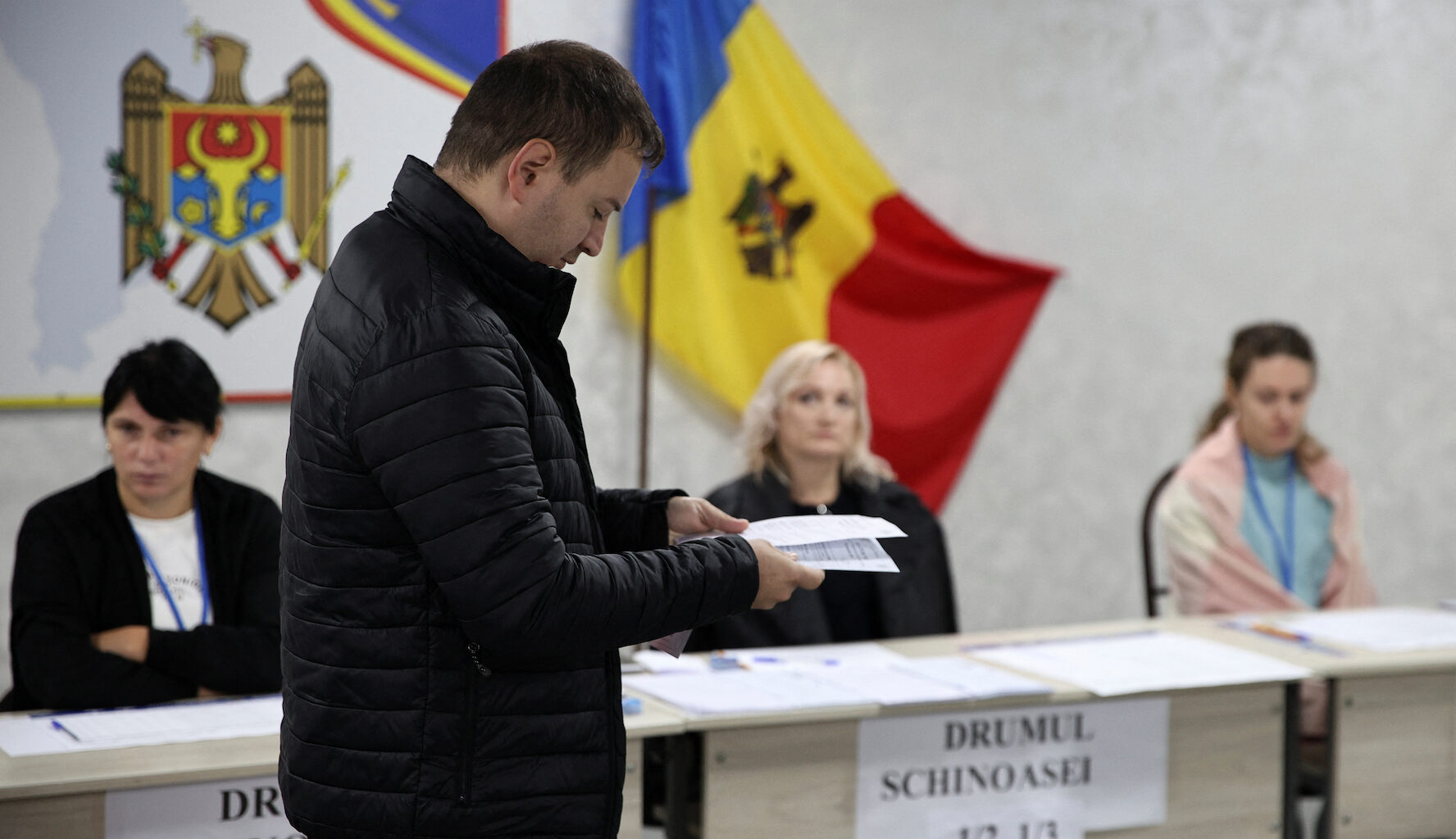Democracies globally are under assault from a network of autocrats and malign actors seeking to undermine democracy, elections, and freedoms. Moldova, which just held its presidential election and a constitutional referendum on its European future on October 20, is the latest country impacted by an autocratic wave of electoral interference consisting of massive disinformation campaigns and cyberattacks. Moldovans face a difficult electoral environment as they return to the polls for the runoff election on November 3.
It is reported that Russia and Moldovan proxies have orchestrated a massive, unprecedented vote-buying effort by funneling money directly to 138,488 Moldovans ahead of the election to influence people’s choice for president and on the referendum. Incredibly, the number of Moldovans who received Russian money may be higher.
Kremlin electoral interference is not unique to Moldova. We see similar pernicious attempts by Russia to destabilize democracies and sabotage elections globally, including in the United States. Massive Russian interference in Moldova, and this past week in Georgia’s parliamentary election, are ominous warning signs for American officials and voters in the lead up to the November elections.
Partners of Moldova, including the U.S., European Union (EU), and the transatlantic community, must continue to support Moldovans as they prepare to counter Russian-sponsored interference in the lead up to the second round of the presidential election on November 3. U.S., EU, and NATO direct engagement with the Moldovan government, civil society, and the private sector was pivotal to counter massive Russian disinformation and cyberattacks in the pre-election period.
Moldova stands at a critical juncture in its struggle for democracy and security. In addition to voting for their next president, Moldovans showed their mettle to advance democracy by passing a close referendum to enshrine EU integration in their constitution. This came despite Russia’s influence operations to undermine the ballot measure and pull Moldova away from Europe.
Moldova’s democracy and election bent but did not break on October 20 despite Russia’s best efforts. However, the stakes remain high and Moldova’s impressive resilience, democratic progress, and steps toward EU membership hang in the balance in the November runoff.
Russian influence operations
Russia’s consistent efforts to destabilize Moldova have only grown since its illegal invasion of Ukraine, including in Moldova’s local elections in 2023. Over the past two years, the U.S., European Union, United Kingdom (U.K.), Canada, and other countries have responded by sanctioning Russian officials and Moldovan actors undermining Moldova’s democracy, elections, economy, and security.
In the lead up to the October election, the U.S., Canada, and U.K. publicly shared concerns of Moscow’s attempts to influence Moldova’s democratic institutions. Days ahead of the election, Moldovan authorities announced they had identified 100 provocateurs and arrested four people allegedly trained in Russia and the Balkans to cause election unrest.
On October 21, Moldova’s pro-democracy President Maia Sandu confirmed fears about wide-scale election interference, stating that Moldovan authorities had “clear evidence that these criminal groups aimed to buy 300,000 votes,” calling the influence operation “a fraud of unprecedented scale.” If confirmed, with a voting population of just over 3 million, the scale of the alleged fraud is immense. The International Republican Institute’s (IRI) and National Democratic Institute (NDI) released preliminary statements post-election underscoring Russian interference including vote-buying, illegal party financing, propaganda, and cyberattacks.
The electoral landscape
Since Moldova’s independence, Russia has used proxies at the national, regional, and local levels to thwart Moldovan EU aspirations and to prevent democracy and rule of law from taking root. Pro-Russian Moldovan oligarch Ilan Shor, who has been sanctioned by the U.S, is a prime example of Putin’s cadre of enablers in Moldova. Shor is accused by Moldovan police of funneling $39 million through a Russian bank in September and October to influence voters in Moldova. Like in Ukraine and the region generally, Russia’s malign actions and its proxies have had a devastating impact on Moldova’s democratic, economic, and security progress–its presidential election is no exception.
President Sandu, who received 42.49% of the vote, will now go head-to-head with challenger Alexandr Stoianoglo, former prosecutor general of Moldova, who received 25.95%. Stoianoglo is backed by the Russian Party of Socialists (PSRM), led by Putin-ally former President Igor Dodon. Stoianoglo was dismissed from his post as prosecutor general by President Sandu after being arrested by national anti-corruption officers in October 2021 under various charges of corruption. Stoianoglo’s candidacy is also supported by Moscow-backed oligarch Shor’s electoral bloc. In 2023, Shor was convicted of stealing $1 billion from Moldovan banks.
A decisive moment for Moldova
On Sunday, Moldovans will determine their country’s political, economic, and security trajectory for decades to come. Elected on a pro-EU platform, President Sandu and the Party of Action and Solidarity-led government have diligently worked to maintain security and stability, foster democratic and anti-corruption progress, and secure EU candidate country status, including following Russia’s invasion of Ukraine.
The results of Moldova’s upcoming presidential runoff will not only determine its domestic political direction and integration with Europe, but also its position in a region destabilized by ongoing conflict. Moldovans will decide whether their future will be theirs to determine or again undermined by malign actors, such as Putin’s Russia. Moldovans will again grapple with these same challenges, including Russian interference, in the lead up to their parliamentary elections in 2025.
Moldova’s partners
Time is short to support Moldovans as they pick their next president and fight to secure their democracy and EU integration. A collaborative effort with partners is needed now and in the future to address the Kremlin’s malign actions, disinformation, and election interference. It is not too early to focus on similar levels of partner engagement and support that will be needed in the lead up to Moldova’s 2025 elections. It is in the interest of the transatlantic community to help Moldova safeguard its hard-fought progress and democratic future and strengthen its position within Europe, while navigating current challenges. Moldova, the U.S., and Europe are stronger and more secure when democracies stand together.
